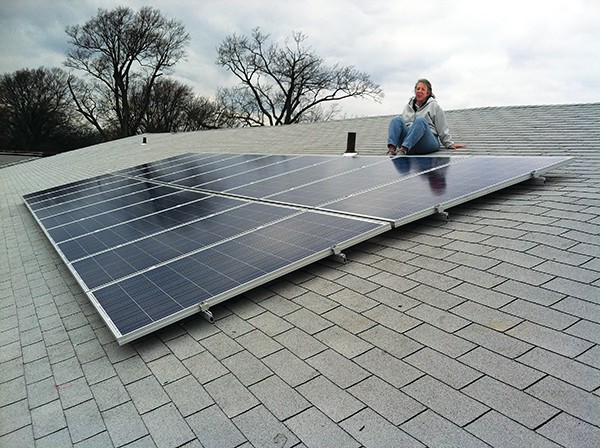
Use more energy and the Tennessee Valley Authority (TVA) will charge you less; use less and you’ll be charged more.
It’s a new pricing structure TVA leaders liken to “buying bulk at the grocery store” and believe it could make paying for energy more equitable in the future.
The new strategy also has opposition from a new coalition of diverse groups that believe the new policy would “restrict the solar power market“ through “unfair rate structures” and “heavy-handed tactics.”
Either way, TVA leaders say the time has come to at least start talking about how they charge for energy. Changes, they said, have come to the power industry, big changes, “and this time it’s well beyond irons and refrigerators” but technology is still at the core.
“Today, people have unique ways to access and use energy,” reads a 1,600-word explanation of the shift on the TVA’s website. “Rather than simply purchasing energy from local power companies, consumers have — and are exercising — the option to generate a portion of it themselves using technologies like solar panels.”
 Laura Jean Hocking
Laura Jean Hocking
Julia Hicks poses with First Congregational Church’s solar array.
Cass Larson, TVA’s vice president of pricing and contracts, called it a “seismic shift” and one that’s a dilemma for companies that generate power. As consumers generate their own power or use energy-efficient technologies, the demand for TVA’s power goes down.
Even though the TVA has cut costs by $800 million and invested $16 billion in new technology over the last few years, it won’t be enough to cover the cost of maintaining the electricity grid if consumer demand for power falls the way TVA thinks it will.
“Power companies that don’t adapt and reinvent themselves won’t be able to ensure the safety, reliability and resilience consumers have come to expect,” according to the TVA blog post called “A New Pricing Paradigm.”
For an example, TVA pointed to RadioShack. Smartphones, it said, can now do the work of many of RadioShack’s gadgets combined.
“Similarly, technology is forcing every energy company in America to change,” reads the blog post. “At TVA, we need to be ahead of the game for the people of the Tennessee Valley.”

So, TVA is in talks to change its rate structure. If you can afford to generate your own electricity or use energy-efficient appliances and devices, your rates would go up.
“If we look at those who are pursuing energy efficiency and solar technology, they are the companies and people who can most afford it—and current electricity pricing is providing too large an incentive for them to do so,” TVA said. “Those who cannot afford to invest in cutting-edge technology are the ones left to make up the difference.”
Scott Brooks, a TVA spokesman, said it would be a change in the way the utility charges for energy, not in the cost of the energy itself. With that, the move would be revenue neutral for TVA, Brooks said, meaning the utility would not get any new funds from the move.
But a new coalition stepped forward Wednesday to fight the new structure, saying it would limit consumer choice and put the state behind in solar power production.
The new coalition — Tennesseans for Solar Choice — includes Conservatives for Energy Freedom (CEF), the Tennessee Small Business Alliance (TSBA), the National Association for Advancement of Colored People (NAACP), the Tennessee Solar Energy Industries Association (TenneSEIA), and the Southern Alliance for Clean Energy (SACE).
The new group said Wednesday its focus is to “work together across political lines to ensure that TVA, as a self-regulating, federal monopoly does not make decisions that limit customer choice for residents, businesses, or local power companies, through unfair rate structures or heavy-handed tactics that restrict the solar power market.”

Debbie Dooley, Tea Party co-founder and president of CEF, called TVA “an outdated, federally-sanctioned monopoly, that appears to be working against consumer choice and energy freedom via regressive policies and ‘self regulation.”
Jimmie Garland, vice president of Middle Tennessee for the Tennessee State Conference of the NAACP, said “solar choice is about taking the power back from monopolies who make decisions behind closed doors and instead giving that power to the people.”
“It is crucial that we support fair access to clean, affordable, healthy solar energy, and that we oppose discriminatory fixed charges that hurt people across the valley,” Garland said.
Former TVA board chairman, S. David Freeman, said while he’s seen the TVA evolve over the years, he was concerned about the direction it is now heading.
“TVA has both an opportunity and an obligation to the people of Tennessee to act as a leader, but they are instead lagging behind in solar, and this is not acceptable,” Freeman said.
Also, TVA said the new pricing structure would give breaks to those who use more energy, a move that could incentivize companies to move to the Tennessee Valley.

“We already have some of the lowest power rates in the country,” reads its recent blog post. “Making energy even more affordable will incentivize businesses to locate to the Valley to use our clean, low-cost, reliable energy.
“This will have a particularly vitalizing effect on economic development — attracting energy-intensive businesses to the Valley, and encouraging expansion among businesses already here — which means more, higher-paying jobs for Valley residents.”
TVA leaders gather at Pickwick Landing State Park (about two hours east of Memphis) for a board meeting Thursday morning. The board’s agenda does not include a discussion on the proposed changes.
Brooks said the new structure is not finalized and would not take effect until October 2018 at the earliest. TVA officials are now in talks with local power companies across the Valley. Any new price structure would have to go before the TVA board.